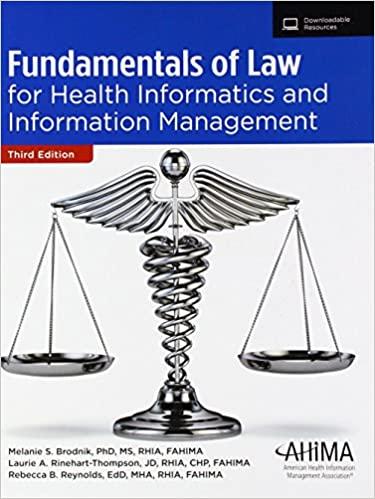Question
Question Analyze the case through the lens of cultural intelligence. What is... Analyze the case through the lens of cultural intelligence. What is required to
Question
Analyze the case through the lens of cultural intelligence. What is...
Analyze the case through the lens of cultural intelligence. What is required to successfully negotiate challenges in cross-cultural environments?
On a hot and humid Monday morning late in September 2018, Richard Evans, general manager of the Siam Chemicals Company (SCC), walked through the glass doors of the production facility on the Bangkapi Industrial Estate just outside Bangkok and took the lift to his office.
SCC, the Thai subsidiary of Swiss-based group Chimique Helvetique Ltd. (CHL), operated in three product groups: Polymers, Resins, and Speciality Chemicals & Adhesives and employed about 150 people, all locals. The company had been one of CHL's first forays into SE Asia almost 30 years ago and had always performed well in the region's highly competitive markets. However, its recent financial performance had been disappointing and CHL had moved quickly to arrest any further decline.
Richard Evans had arrived at SCC towards the end of June 2018, tasked with increasing productivity and expanding the company's customer base in the region. For the 40-year-old Evans who had spent his entire career based in Europe, promotion to managing one of CHL's key SE Asian subsidiaries represented a big challenge: one he had accepted enthusiastically. But only now, after three months grappling with the cultural complexities of living and managing in this quite foreign business environment was he beginning to understand exactly how big that challenge was.
He had spent the previous two weeks travelling round other CHL subsidiaries in the region to familiarise himself with the territory. This had involved a series of early starts and all-day meetings with new colleagues, followed by late nights in restaurants being introduced to customers and important local contacts. His schedule had left little time to talk to his Thai secretary Wilai or read the stream of emails and other messages flashing up on his iPhone.
So when he reached the office on his first morning back and switched on his computer Richard was not surprised to find his in-box displaying almost a hundred unread emails, many with multiple attachments. Wilai had already dealt with the routine enquiries but as he had foreseen the bulk were from his management team, anxious to impress the new boss with their diligence and expecting a prompt response to their requests and solutions to their problems. Sifting through them Richard made a mental note to check out his social media pages too, as several managers were active posters who never failed to include him on their messaging lists.
It was 7.00 am, his usual starting time for a long day's work. However, later that morning he was due to fly back to CHL's headquarters in Basel to present his first quarterly report to the board. For Richard this represented an early test of his competence as an expatriate manager and he had spent the weekend writing the report, laying out his findings and future strategy for SCC. Now, looking at his watch he realised he had less than an hour to answer the most urgent queries in his in-box before leaving for the airport. In Europe this would have presented little difficulty as he could have skimmed through the mails, known intuitively what action to take and quickly relayed a decision.
Here, however, it was quite a different matter.
Intuitive responses based on his long experience in Europe would be of little use since SCC's cultural and working environment bore little resemblance to those he had previously managed. Richard knew he had to read each email very carefully in order to grasp the complex social interactions and working structures behind the apparently simple statements and requests made by his local managers. Failure to understand the nuances of the Thai business culture, he had been warned by his Swiss predecessor, could lead to expensive mistakes operationally and have serious repercussions on his credibility and acceptance as a leader. 'No pressure then,' he thought wryly as he opened the first email.
Case Email Link: https://luonline.blackboard.com/courses/1/11126.202190/messages/_3246238_1/International%20Business_Case%20Study.pdf (Page 5)
You can use the following questions as a checklist:
- What is your assessment of the situation faced by Richard Evans? In what order should he tackle the issues facing him?
- To what extent should expatriate managers be sensitive to local conditions, concerns, and customs? When dealing with the type of issues confronting Evans in Thailand do 'general principles' apply? If so, how could they be implemented effectively?
- How should managers define 'urgency' and 'importance' when operating in a foreign culture? How could Evans distinguish between them? It could be helpful to do a 2 x 2 grid (Urgent/Not Urgent and Important/Not Important) and classify each issue presented to Evans in the emails in this grid.
- How would you respond to each of the emails directed to Evans? How would it be different if you needed to respond to similar emails in the US?
- How should Evans develop trust and commitment in the team?
- Based on what you have learned throughout this course, what unique aspects of Thai culture come into focus in this case?
Step by Step Solution
There are 3 Steps involved in it
Step: 1

Get Instant Access to Expert-Tailored Solutions
See step-by-step solutions with expert insights and AI powered tools for academic success
Step: 2

Step: 3

Ace Your Homework with AI
Get the answers you need in no time with our AI-driven, step-by-step assistance
Get Started


